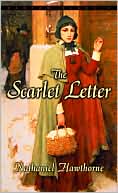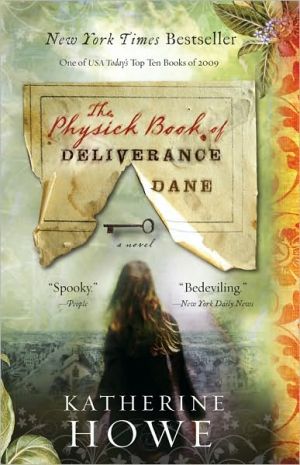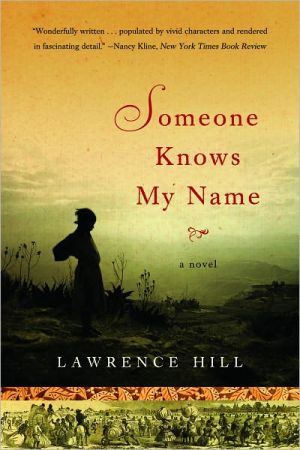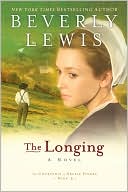The Widow's War
Married for twenty years to Edward Berry, Lyddie is used to the trials of being a whaler's wife in the Cape Cod village of Satucket, Massachusetts—running their house herself during her husband's long absences at sea, living with the daily uncertainty that Edward will simply not return. And when her worst fear is realized, she finds herself doubly cursed. She is overwhelmed by grief, and her property and rights are now legally in the hands of her nearest male relative: her daughter's...
Search in google:
Married for twenty years to Edward Berry, Lyddie is used to the trials of being a whaler's wife in the Cape Cod village of Satucket, Massachusetts—running their house herself during her husband's long absences at sea, living with the daily uncertainty that Edward will simply not return. And when her worst fear is realized, she finds herself doubly cursed. She is overwhelmed by grief, and her property and rights are now legally in the hands of her nearest male relative: her daughter's overbearing husband, whom Lyddie cannot abide. Lyddie decides to challenge both law and custom for control of her destiny, but she soon discovers the price of her bold "war" for personal freedom to be heartbreakingly dear. Includes the fascinating "story behind the story" of The Widow's War, a map of colonial Brewster, and a driving tour of the village of Satucket.The Washington Post - Anita ShreveMany historical novels die on the page, the characters never having drawn breath. In Gunning's capable hands, a novel of history is allowed to be as vivid as the smell of a man: "Tobacco and sweat, but a different sweat, and something like sassafras but not sassafras."
The Widow's War\ A Novel \ \ By Sally Gunning \ William Morrow\ ISBN: 0-06-079157-8 \ \ \ Chapter One\ January 2, 1761 \ Lyddie Berry heard the clatter of the geese and knew something was coming - Cousin Betsey, Grandson Nate, another wolf, or, knowing those fool birds, a good gust of wind - but when she heard the door snap hard against the clapboards she discounted all four of them; she whirled with the wind already in her skirts to see the Indian, Sam Cowett, just ducking beneath the lintel. He had the height and width to crowd a room, and the black eyes - what was it about a pair of eyes you couldn't see through? She took a step back and was sorry she'd done it, but he'd not have noticed; already he'd looked past her, calling into the empty doorway behind, "Blackfish in the bay!" The words had been known to clear every man out of town meeting, so Lyddie wasn't surprised to hear the instant echo of Edward's boots or see the great sweep of arm that took up his coat and cap along with his breakfast. The bread went to pocket and the beer to mouth; he set back the mug and smiled at her; never mind it was a smile full of whales, not wife - she answered it, or would have if he'd stayed to see it - he was gone before her skirts had settled.\ Lyddie ate her bread and drained her beer and stepped into her day, scouring down the pewter, building up the fire for the wash, shaving the soap into the kettle. At the first trip to the well she looked up at the trees andnoted the wind, coming up brisk but constant in direction; by the fourth trip it had turned fickle, angling in first from the north, then the east, then the west, sometimes in a great gust and sometimes in a whisper. She went back inside and pounded out the shirts and shifts, tossing them into the pot to boil, all the while listening to the wind. She descended the ladder into the cellar to fetch the vegetables for the stew, and even there in the hollow dark she caught the echo; she climbed out and chopped turnips and listened, put the salt fish to soak and listened, trimmed and set the candles and listened, smoothed the bed feathers and listened. Once she'd hung the stew pot, poked the fire, and stirred up the clothes, she grabbed her cloak and cap off the peg and went out.\ The winter had begun mild, and the ruts were deep and soft in the landing road; Lyddie was muddied to the tops of her boots by the time she took the rise at Robbin's hill and saw the ash-colored bay spotted all over with boats and foam. She leaned into the wind and soon had a clear view of the beach, blackened as far as her eye could see, by the whales, driven ashore by the men's oars beating against the water. It was a rich sight and one not seen in the bay for some years; Lyddie stood on the bluff wrapped tight in her cloak and gloried in the view, but she made no peace with the wind. It worried her around the ears, it heeled over the boats and slapped them back; it herded the waves far up the beach and left them to die among the whales. She looked for Edward's whaleboat, but they all looked the same, although she thought she picked out the great shape of the Indian. At length she gave up and let the wind push and pull her home.\ On her return she put out her midday dinner of the stew and bread and beer. They'd finished the old loaf at breakfast, and she set out the new one with her usual satisfaction at the symmetry of its shape, the tight seal of the crust blocking out the petrifying air. She had only one moment of unease, that she should waste a fresh cut into a new loaf without Edward home to share, but the minute she'd heard the word blackfish she'd expected to take the midday meal alone, and it didn't trouble her long, wouldn't have troubled her, if it weren't for that wind. She hastened through the meal and put away the remains, wrapping the bread in the cloth with care. She washed her plate, hung the clothes in front of the fire, swept up the pieces of bark and dried leaves and pine needles that trailed everywhere on the heels of the firewood, scoured the floor with sand, watched the darkness lie down, and listened to the wind.\ When was it that the sense of trouble grew to fear, the fear to certainty? When she sat down to another solitary supper of bread and beer and pickled cucumber? When she heard the second sounding of the geese? Or had she known that morning when she stepped outside and felt the wind? Might as well say she knew it when Edward took his first whaling trip to the Canada River, or when they married, or when, as a young girl, she stood on the beach and watched Edward bring about his father's boat in the Point of Rock channel. Whatever its begetting, when Edward's cousin Shubael Hopkins and his wife, Betsey, came through the door, they brought her no new grief, but an old acquaintance.\ Shubael spoke. Lyddie heard that Edward's boat had gone over, that the four men with him had been fished out alive, that they had searched till dark but had found no sign of Edward; after that Lyddie heard nothing until she realized there was nothing to hear, that the three of them now stood in silence, that the candle had lost an inch of height.\ She looked at Shubael. His coat was crusted with salt, his hair glued dark and wet below his cap.\ "You were near when it happened?"\ He dropped his eyes, shook his head. "'Twas Sam Cowett got there first. He recovered them. All but -"\ (Continues...)\ \ \ \ \ Excerpted from The Widow's War by Sally Gunning Excerpted by permission.\ All rights reserved. No part of this excerpt may be reproduced or reprinted without permission in writing from the publisher.\ Excerpts are provided by Dial-A-Book Inc. solely for the personal use of visitors to this web site. \ \
\ From Barnes & NobleBarnes & Noble Discover Great New Writers\ To open this novel is to enter 18th-century American history, as Gunning re-creates a Cape Cod whaling village to tell the absorbing story of her determined protagonist, Lyddie Berry. When Lyddie's husband, Edward, leaves on a fishing expedition, it is the last time she will see him alive. Lost at sea, Edward has left Lyddie a widow. But a widow in 18th-century Massachusetts didn't have the rights widows now have, and Lyddie's grief soon turns to smoldering anger as she watches her husband's home and property handed over to her officious son-in-law. \ \ As a widow, Lyddie is entitled to a third of her home and faces a choice: either inhabit that small section or receive a third of the price should her son-in-law sell the house. Shocked by the unfairness of such terms, Lyddie refuses to acquiesce and soon squares off against her son-in-law, alienating herself from her daughter. In short order, Lyddie becomes an outcast. Nearly destitute, she turns to her Indian neighbors for help. In so doing, Lyddie plumbs a newfound strength and tenacity and forges a new life for herself -- a life of unheard-of independence. What is perhaps most fascinating about The Widow's War is the consideration of all that has changed since those early days -- and all that has stayed the same. (Spring 2006 Selection)\ \ \ \ \ Boston Globe"Heartrending ... Gunning’s vibrant portrayal of Lyddie’s journey shows that the pursuit of happiness is not for the faint of heart."\ \ \ Booklist"Readers will be swiftly turning the pages, eagerly cheering for the strong-willed widow."\ \ \ \ \ Historical Novels Review (The Historical Novel Society); "Editor's Choice"“Gripping, romantic, historically sound, and completely satisfying...I’ll be surprised if I read a better historical novel this year.”\ \ \ \ \ Historical Novels Review"Gripping, romantic, historically sound, and completely satisfying...I’ll be surprised if I read a better historical novel this year."\ \ \ \ \ Anita ShreveMany historical novels die on the page, the characters never having drawn breath. In Gunning's capable hands, a novel of history is allowed to be as vivid as the smell of a man: "Tobacco and sweat, but a different sweat, and something like sassafras but not sassafras."\ — The Washington Post\ \ \ \ \ Publishers WeeklyMystery author Gunning (Fire Water) moves to literary historical with this provocative tale of a whaling widow determined to forge a new life in colonial Cape Cod. When Lyddie Berry's husband drowns in 1761, her grief is compounded by the discovery that he's willed her the traditional widow's share-one-third use, but not ownership, of his estate. Lyddie's care, and the bulk of the estate, have been entrusted to their closest male relative, son-in-law Nathan Clarke, husband to their daughter Mehitable and a man used to ordering a household around. Lyddie's struggle to maintain a place in her radically changed home soon brings her into open conflict with an increasingly short-tempered Nathan and his children from two previous marriages. Gunning infuses the story with suspense and intrigue, as Lyddie's plight brings her into the orbit of local Indian Sam Cowett; community censure then brings her an ally in sympathetic lawyer Ebeneezer Freeman. Gunning resists easy generalizations and stereotypes while the story pulls in 18th-century law and Anglo-Indian relations, but the dull period dialogue, of which there is a great deal, reads awkwardly. Yet she makes Lyddie's struggle to remake her life credible and the world she inhabits complex. (Feb.) Copyright 2006 Reed Business Information.\ \ \ \ \ Library JournalIn 1761, Massachusetts-born attorney James Otis challenged the British government's right to impose legal writs on the American Colonies. He was also an outspoken abolitionist and supporter of women's suffrage. In her latest novel, Gunning (Fire Water) uses Otis as a catalyst for change in the life of Lyddia Berry. While most people find the lawyer's sentiments appalling, she is quietly thrilled-in fact, Otis's speeches inspire Lyddia to defy her son-in-law, a pompous businessman who assumed legal responsibility for her following the accidental death of her fisherman husband. Gunning exposes the sexism of the era-married women were denied the right to own property and were barred from signing contracts, while widows were under the thumb of male heirs and granted use of only one-third of their deceased husband's property-and juxtaposes it with the racism of the white Colonists against Native Americans. By merging historical fact with riveting fiction, she offers readers an intimate peak into the daily life of pre-Revolutionary War Satucket, MA. Along the way, they'll get a vivid sense of the race, gender, and class dynamics of America's foreparents while enjoying a wonderful story. This is historical fiction at its best; highly recommended.-Eleanor J. Bader, Brooklyn, NY Copyright 2005 Reed Business Information.\ \ \ \ \ Kirkus ReviewsGunning's quietly compelling historical novel places the limited rights of 18th-century New England married women, particularly widows, within the context of a pre-Revolutionary America in which rebellious attitudes toward English rule foment new ideas about freedom and individual rights. When her husband dies in a whaling accident, 39-year-old Cape Codder Lyddie Berry is entitled only to a widow's third of her husband's estate. She is expected to move in with her daughter Mehitable and avaricious son-in-law Nathan Clarke, who, as Lyddie's closest male relative, now controls her life. Her only ally is her husband's lawyer, widower Eben Freeman. While Nathan is a stingy, narrow-minded Puritan, Eben, whose friend James Otis's suit against Britain's Writs of Assistance is a precursor to the Revolution, is more open-minded. Unable to live with Clarke, Lyddie defies social norms and moves back into her home-or one-third of it. Clarke's plan to sell the cottage is thwarted because Lyddie's neighbor Sam Cowett, a local Indian semi-accepted by the townspeople, refuses to relinquish his timber rights to the Berry property. When Sam's wife Rebecca comes down with brain fever, a financially desperate Lyddie works as her paid nurse. Despite malicious gossip concerning her relationship with recently widowed Sam, Eben proposes marriage. A happy outcome seems possible until Lyddie finds herself unwilling to put herself at a man's mercy, even reasonable Eben's. Gunning (Dirty Water, 2004, etc.) paints the ethical, emotional and financial dilemmas of her refreshingly adult characters in surprisingly lively shades of gray.\ \








